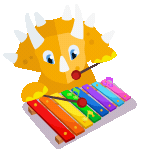The Role of Memory Games in Vocabulary Development
Vocabulary is the foundation of language, and kids learn best when new words are introduced through play. One of the most effective tools? Memory games simple, engaging activities that help children absorb and recall new language naturally.
Here’s how memory games boost vocabulary development and how to use them effectively at home.
1. Strengthen Word Retention Through Repetition Matching games require children to recall and repeat vocabulary, reinforcing it through visual and verbal cues. Repeating a word while flipping a card helps strengthen neural pathways associated with memory.
2. Engage Multiple Learning Styles Memory games combine visual (images or written words), auditory (saying the word aloud), and kinesthetic (physically flipping cards or moving pieces) learning. This multi-sensory approach is especially helpful for younger learners who need active engagement.
3. Encourage Focused Attention Kids must concentrate to remember card positions and word pairs. This focused attention is crucial not only for learning vocabulary but also for developing broader cognitive skills.
4. Make Learning Feel Like Play Children are more likely to participate and persist when they’re having fun. Platforms like Dinolingo include memory-based vocabulary games as part of their interactive learning system. Kids earn points and unlock rewards as they match and master new words.
5. Adapt Memory Games to Fit Any Theme You can use printable flashcards or create your own matching sets based on topics your child is studying: animals, food, colors, or family. Change the theme weekly to keep it fresh and reinforce different word sets.
6. Try Digital and Offline Options Alternate between online apps and homemade cards to mix up the format. Dinolingo offers both interactive games and printable vocabulary materials, giving you the flexibility to go screen-free or digital depending on your routine.
Final Thoughts Memory games are a playful, proven way to support vocabulary growth. Whether you’re using a digital platform or crafting your own set of cards, these games help words stick.
By turning learning into a challenge and a celebration, memory-based activities give children the tools to retain and enjoy their expanding language skills.
Sources:
Start Learning a New Language Today!
Best Language App for Kids.
7-day free trial. Then only $19/month. Cancel anytime.

